
Mar 30, 2025 | Reliability, Safety and Security
Trees and shrubs are a critical part of our environment and provide many benefits, from absorbing pollutants and cleaning the air we breathe to providing shelter and food for wildlife.
When adding trees to your landscape, it’s important to plant the right tree in the right place. Choosing trees that won’t grow into or fall onto power lines when they grow to their maximum height helps prevent tree-related outages. This generally means large trees should be planted at least 50 feet away from electric utility wires.
Large trees close to power lines can pose a threat, particularly during damaging storms, when branches or whole trees can fall and take down power lines and cause outages.
We’re committed to providing the safest, most reliable and most affordable power to our 1.5 million customers, and we work year-round to prune trees that can cause disruptive power outages. Customers can do their part by following the right tree, right place approach.
We don’t prune or remove trees on or beneath the service wire between your house and our utility poles. We can de-energize the wire and lower it to the ground for work to be done. Call us at 1-800-342-5775 at least five business days in advance of the work.
Here are some other things to remember when adding trees or other vegetation on your property:
 Avoid planting trees and other vegetation near power lines when possible. Check out the graphic on the right for recommended spacing between trees and power lines.
Avoid planting trees and other vegetation near power lines when possible. Check out the graphic on the right for recommended spacing between trees and power lines.- Click here for a list of recommended tree and shrub species for planting near power lines.
- Plant tall-growing trees at least 50 feet from power lines.
- Don’t plant anything near neighborhood transformers.
- Call 811 at least three business days before digging to make sure the area is checked for underground utilities, including underground power lines. For more on safe digging, visit www.pa1call.org.
- Have qualified professionals prune trees near power lines. Contact with power lines can cause serious injury or death and electricity can “flash over” if someone gets too close.
- Visit the Arbor Day Foundation’s website (https://www.arborday.org/planning-selection-location) for additional resources and information about tree planting.
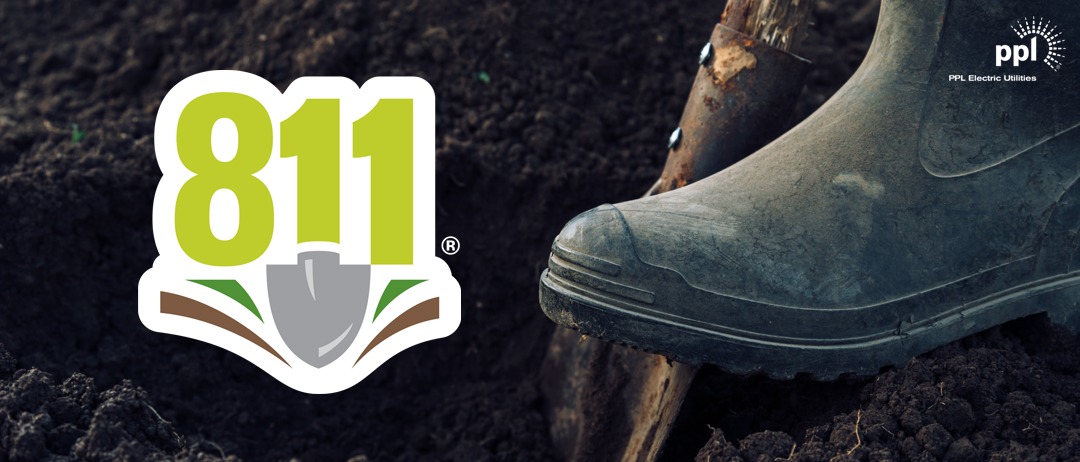
Aug 6, 2024 | Safety and Security
Nothing is more important than ensuring everyone stays safe near our power lines and electrical equipment, including underground power lines.
We always call 811 at least three business days before any project that involves digging for the safety of our employees, contractors and customers.
On National 811 day, we urge everyone to make the 811 call a normal part of their routine whenever they take on digging projects at home, whether it be adding a fence, deck, tree or mailbox, or any other work that involves digging.
Calling 811 – it’s always free for homeowners – helps prevent injuries, damage to underground power lines and power outages.
Pennsylvania law also requires an 811 call at least three business days before digging. The call helps ensure that underground utility owners can arrange visits to the site to locate and mark all areas where underground utilities — electrical gas, water or sewer lines – exist.
When making an 811 call, make sure to have the following information:
- The county and municipality in which the digging is located.
- The street name and address.
- The nearest intersection/cross street to the address.
- Details of the dig site, including the area of the property where excavation will occur and what kind of work is being done, and what equipment will be used.
Visit paonecall.org for more information about 811 and safe digging practices.
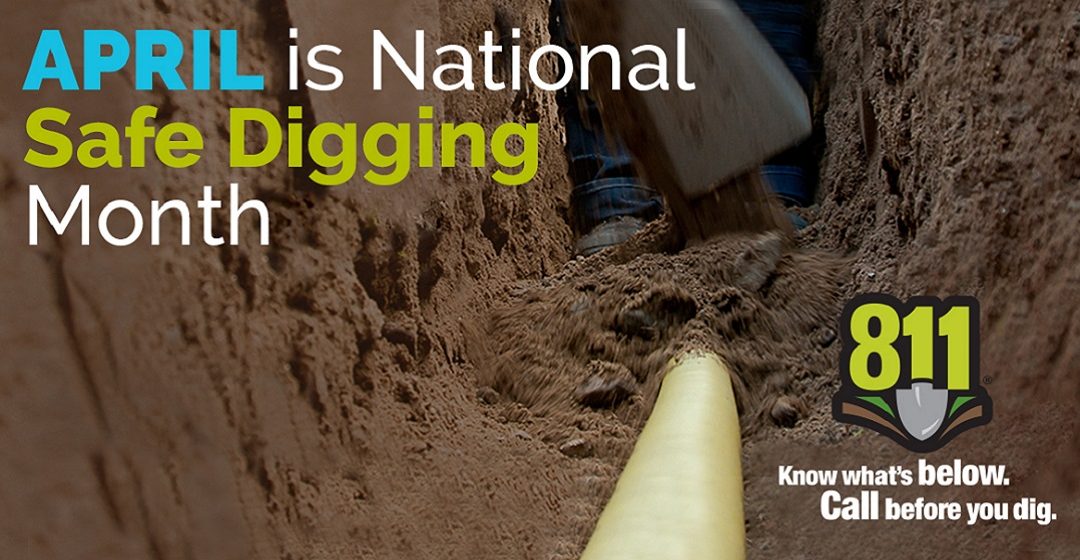
Apr 10, 2024 | Safety and Security
If you’re breaking ground on a spring project – a pool, a new fence or mailbox, or landscaping work – don’t start any digging until you call 811. It’s free, simple and can prevent injuries and power outages.
April is National Safe Digging Month, which serves as an annual reminder about the importance of making safe digging a priority at every job site, regardless of the month. Calling 811 helps ensure that a crew will visit the work site to mark the existence of underground utilities, including underground power lines, so that those doing the work will avoid contacting them.
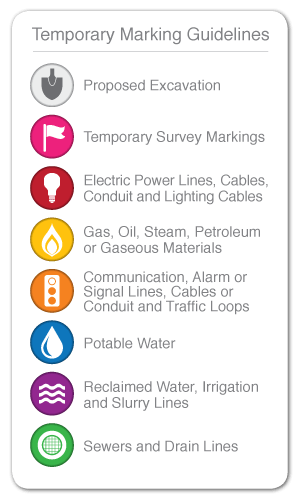 Pennsylvania law requires an 811 call at least three business days before digging with any power equipment. Once the call is placed, a crew is sent out to survey the area and mark it with spray paint and flags where underground utilities – power, water, sewer and gas lines and other utilities – are located. (The graphic at right provided by Pennsylvania811 shows the colors used to mark each type of utility.)
Pennsylvania law requires an 811 call at least three business days before digging with any power equipment. Once the call is placed, a crew is sent out to survey the area and mark it with spray paint and flags where underground utilities – power, water, sewer and gas lines and other utilities – are located. (The graphic at right provided by Pennsylvania811 shows the colors used to mark each type of utility.)
Common Ground Alliance (CGA), an association committed to raising public awareness about excavation safety, says hundreds of thousands of dig-ins to underground utilities occur annually. Those dig-ins have potential to cut residents off from critical services or cause injury.
What to remember
When calling 811, be prepared to provide the following information:
- The county and municipality in which the planned dig is located.
- The street name and address.
- The nearest intersecting/cross street to the address.
- Details of the dig site, including the area of the property where excavation will occur and what kind of work is being done.
- When the project is scheduled to take place.
- The name of the company doing the work (if applicable). (Contractors make their own 811 calls.)
If you see digging going on in your neighborhood and believe an 811 call may not have been placed (no paint or flags), make the call yourself to keep everyone safe and prevent damage to underground lines.
“Making contact with power lines, overhead or underground, can have devastating consequences, so we encourage everyone to call 811 before any digging project on their property,” said Doug Haupt, public safety manager at PPL Electric Utilities. “And remember: the law requires that call.”
Visit pplelectric.com/safety for more information on safety for contractors, first responders, kids and customers.
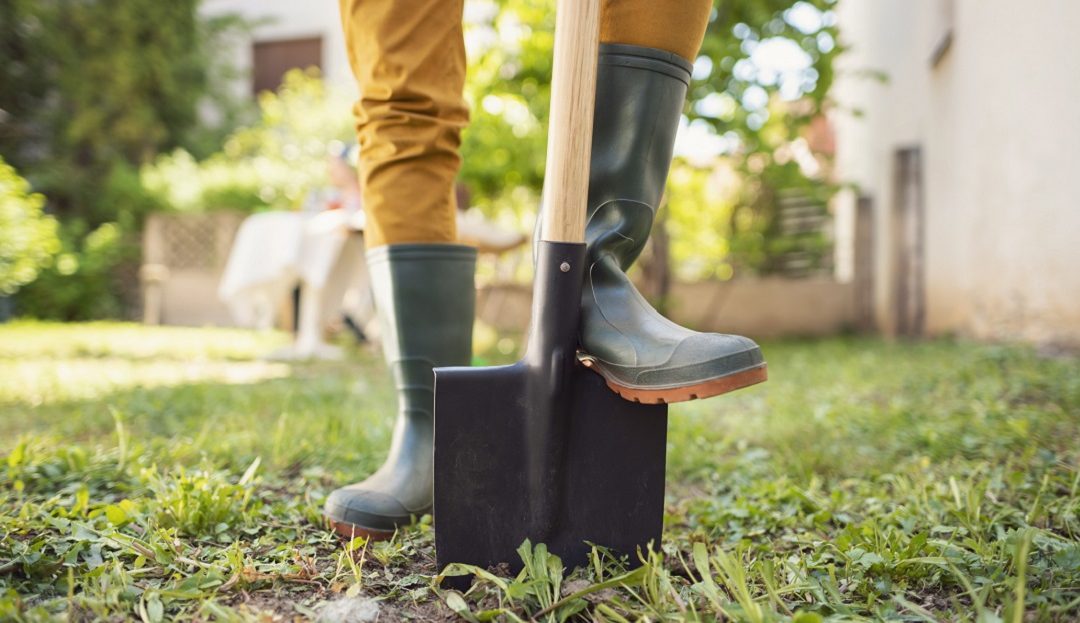
Mar 25, 2022 | Safety and Security
Are you planting any trees or shrubs this spring? If so, are you planning to call 811 before you start digging?
If you think a hole being dug for trees or plants isn’t enough to make the free 811 call, you may be wrong.
Some utilities could be buried inches below ground. And, unfortunately, about one in five people who dig don’t call 811 because they think their project isn’t deep enough for the call, according to Common Ground Alliance, a North American organization dedicating to preventing damage to underground utilities.
An 811 call is free for homeowners excavating on their residential property.
The law requires an 811 call before digging with power equipment, including backhoes, excavators, post hole diggers, and trenchers.
But it’s best to play it safe with any digging project by making the 811 call. Once placing the call, a crew will come out to the dig site to look for potential underground utilities and mark them with paint.
Here’s the information you will need when calling 811:
- The county and municipality in which the planned dig is located.
- The street name and address.
- The nearest intersecting/cross street to the address.
- Details of the dig site, including the area of the property where excavation will occur and what kind of work is being done.
- When the project is scheduled to take place.
If you hire a contractor to do the excavation for you, they are required to call 811 themselves.
Stay safe this spring and call before you dig.
For more info, visit the Pennsylvania 811 website at pa1call.org.
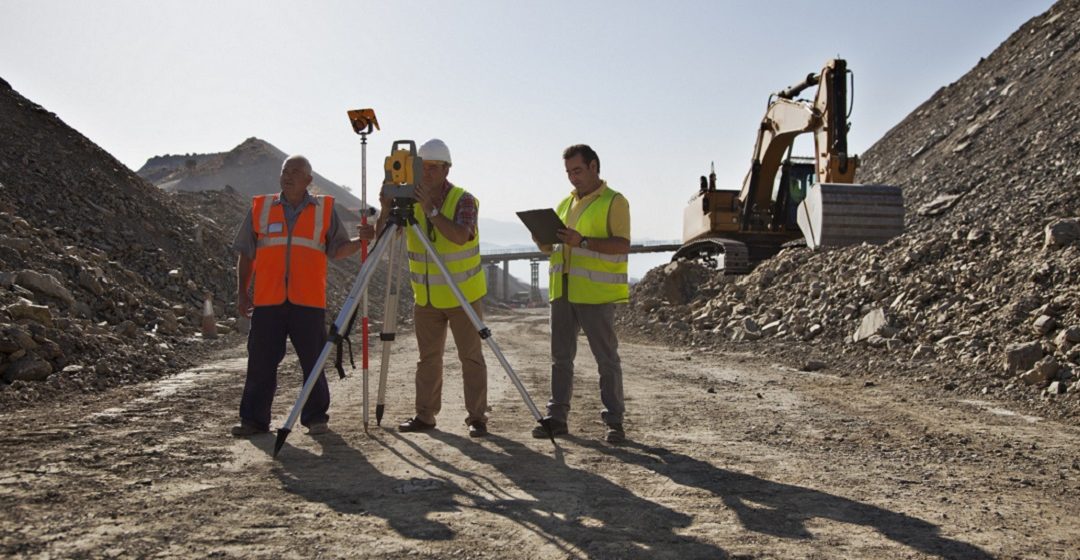
Mar 25, 2022 | Safety and Security
If you do any kind of excavation work as part of a business or at home, you won’t want to miss PA Safety Days events that Pennsylvania One Call System, Inc., is hosting across the state this year, to celebrate its 50th anniversary.
Beginning with Eastern Safety Day at Agri-Plex’s Bill Harris Agricultural Hall, 302 North 17th Street in Allentown on May 17, 2022, the free events provide a chance for excavation professionals, public officials, and others to learn about safe digging practices and promote the protection of critical underground utilities.
We are a proud sponsor of these free events, which have drawn an estimated 28,000 people since 2006.
You can register and learn more about the following events online at pa1call.org/SafetyDay.
- May 17: Agri-Plex’s Bill Harris Agricultural Hall, Allentown Fairgrounds, 302 N. 17th St., Allentown, PA.
- May 19: Drexelbrook Conference Center, 4700 Drexelbrook Dr., Drexel Hill, PA.
- June 7: Monroeville Convention Center, 209 Mall Blvd., Pittsburgh, PA.
- June 16: York Expo Center, Mid-Atlantic Industrial East and West, 334 Carlisle Ave., York, PA.
- August 11: Mohegan Sun Pocono, 1280 Highway 315, Wilkes-Barre, PA.
- Sept. 20: Bayfront Convention Center, 1 Sassafras Pier, Erie, PA.
- Sept. 22: Blair Convention Center, 1 Convention Center Dr., Altoona, PA.
The Safety Day conferences provide valuable training, networking, knowledge transfer, and continuing education, while featuring hands-on demonstrations and an opportunity for participants to learn about the latest safety practices, tools, and techniques.
Attendees typically include excavators, designers, public utilities, facility owners, project owners, municipal leaders, sewer and water authorities, public officials, emergency responders, locators, damage prevention associates, excavation professionals and homeowners.
Each host venue will follow cleaning protocols recommended by the Centers for Disease Control and Prevention (CDC), and the Pennsylvania Department of Health.
Remember to contact Pennsylvania 811 a minimum of three days before you plan to dig. To learn more, please visit Pennsylvania 811 website at pa1call.org.

 Avoid planting trees and other vegetation near power lines when possible. Check out the graphic on the right for recommended spacing between trees and power lines.
Avoid planting trees and other vegetation near power lines when possible. Check out the graphic on the right for recommended spacing between trees and power lines.




